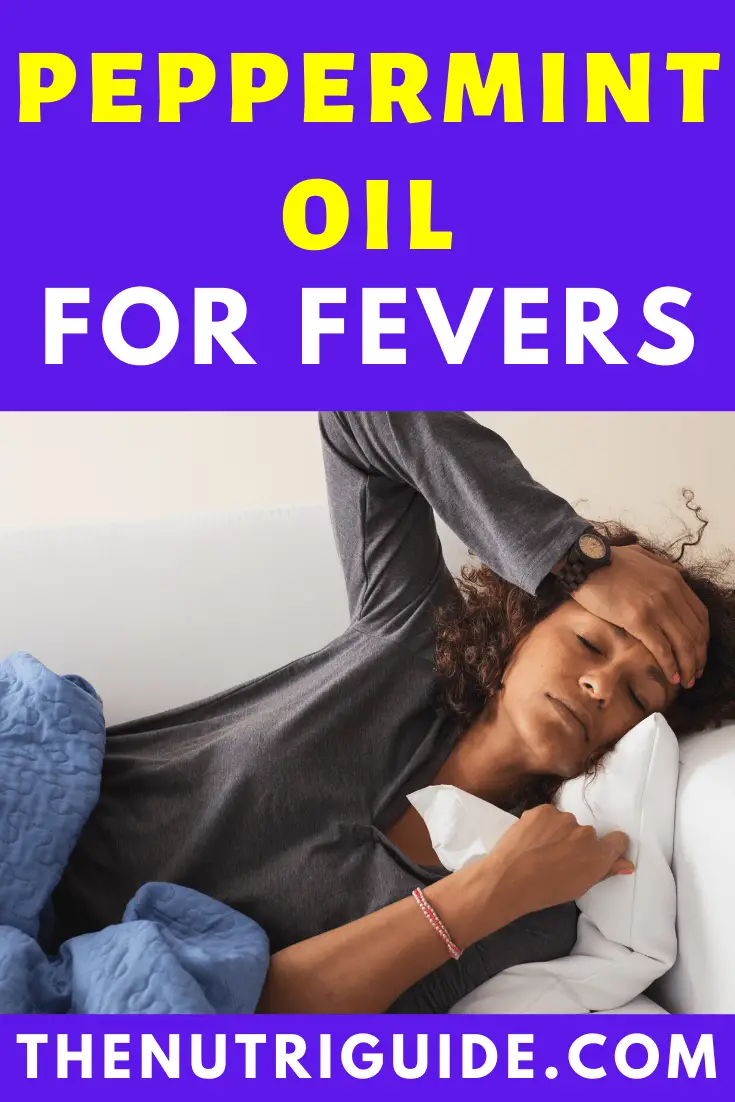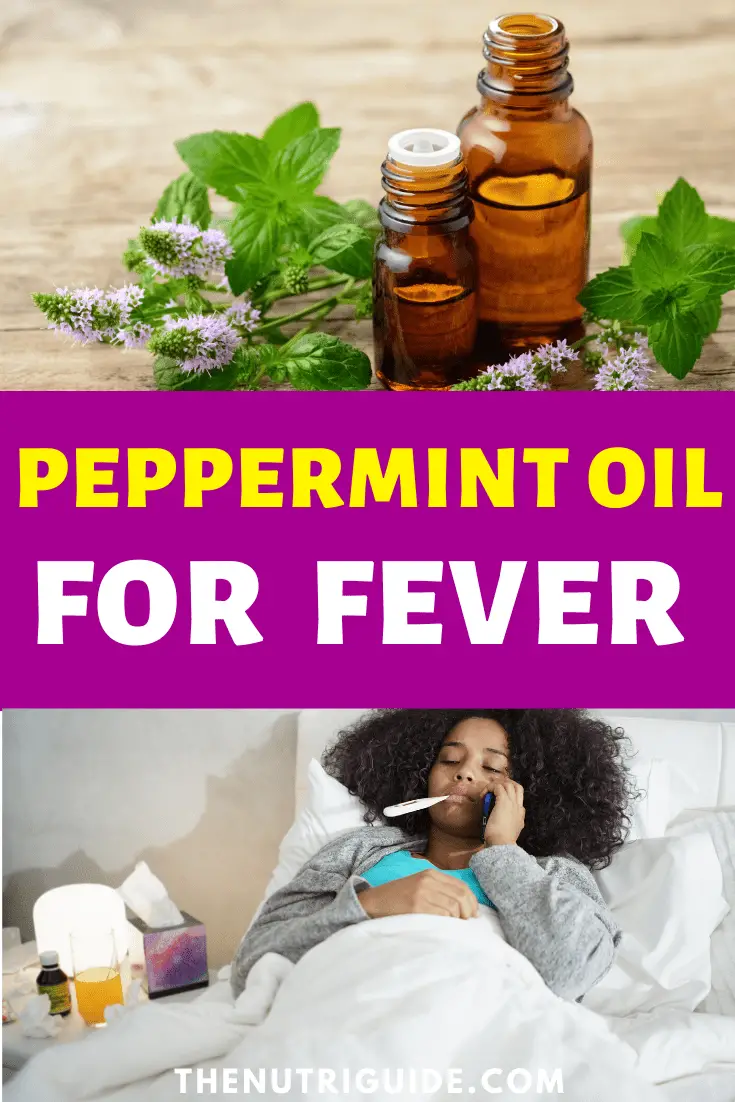Peppermint Oil for Fevers
Peppermint Oil for Fever

When you buy through links on our site, we may earn an affiliate commission at no additional cost to you (learn more)
No one wants to deal with a fever. With hot flashes, sweatiness, and general discomfort, fevers are not a welcome occurrence. While they are quite uncomfortable, they are also important: Fevers alert us to let us know that our body is at work fighting off an illness. They signal to us that we need to take extra care of ourselves and rest. With that in mind, though, it is important to address fevers when they do come about. High fevers, especially in children, can lead to complications; it is important to seek medical advice if you or a loved one are experiencing a high fever. But for low-grade fevers, essential oils can provide relief when your body is heating up.
About Peppermint Oil
Peppermint oil is derived from the mint plant, an herb that has been used therapeutically for many thousands of years by us humans. There are records of its use in ancient civilizations, including those of Greece, Rome, and Egypt. Peppermint oil is known for its aromatic and pungent smell and wonderfully cooling flavor. One method of making it is letting crushed peppermint leaves steep in a carrier oil. Peppermint oil can also be purchased as an essential oil and is highly popular for use in diffusers and various homemade remedies.
Minty and fresh, it is somehow ‘cold’ both to our sense of smell and our sense of touch. This ‘cold’ sensation stems from the active ingredients in the peppermint leaf, which include menthol, menthone, and menthyl acetate. Because the cooling effects of these active ingredients are so pleasing to us, peppermint oil can be found in a plethora of products, including toothpastes, gums, cough drops, balms, and even baked goods. Peppermint is also high in vitamins A and C, magnesium, and potassium.
Peppermint oil has a number of uses as a therapeutic agent. It has been used to help with IBS, nausea and vomiting, indigestion, diarrhea, heartburn, and colds when ingested as a dietary supplement. The oil has also been used topically to help with conditions such as rashes, muscle and nerve pain, headaches, and insect repellent, among others. Using it in the diffuser will not only make your house smell wonderfully; it can also help stave off colds and sinus problems, provide relief during allergy season, and take the edge off of a bad headache.
Peppermint Oil for Fevers
Now to get back to the main topic, peppermint oil can also help bring relief for the ever-dreaded fevers. To begin with, peppermint oil can be used preventatively. Taken as a dietary supplement, this oil can help prevent the onset of illnesses that may lead to a fever, including colds, coughs, and sinus and respiratory infections.
Peppermint oil can also be used if a fever has already made itself at home in your body. As was previously mentioned, the active ingredients found in peppermint oil (the menthol, menthone, and so on) can work to bring a cooling sensation to a body experiencing elevated temperatures. When applied topically, this can bring about comfort and relief from an elevated temperature. To use peppermint oil for this purpose, simply mix two to three drops of the oil with a teaspoon or so of a carrier oil. Carrier oils to be used can include almond oil, coconut oil, or avocado oil. Massage this mixture into your temples and forehead for headache and fever relief. For children, it is good to rub this mixture on the back of the neck. This mixture can also be rubbed onto the chest to help bring relief to any congestion you may have and to help clear up your sinuses.
A Word of Caution
Use of peppermint oil in general should be avoided in children who are less than two-and-a-half years old. Also, it is not recommended to apply undiluted peppermint oil to the skin, especially for children who are under twelve years of age. Peppermint is generally thought to be safe when consumed as an ingredient in food items; the main risk here is a peppermint allergy, though this is rare. It is best to consult with a doctor if you are pregnant or breast-feeding if you are considering using peppermint oil as a dietary supplement. It should not be used as a dietary supplement for children under eight years of age. And if you happen to have a condition called achlorhydria (where not enough stomach acid is produced), avoid using enteric-coated peppermint oil supplements.
Bottom Line
Peppermint has been used therapeutically for thousands of years, and with good reason. Menthol, one of the main components of the oil form of peppermint, imparts flavor and scent that brings relief to many different ailments. From IBS, to headaches, to coughs and colds, peppermint oil has been known to help on many fronts. The next time you have a fever, use this wonderful oil to help bring some cooling relief.







